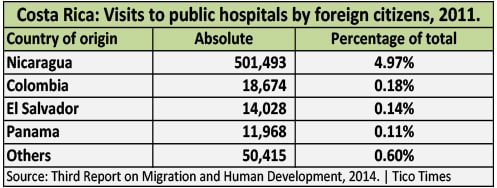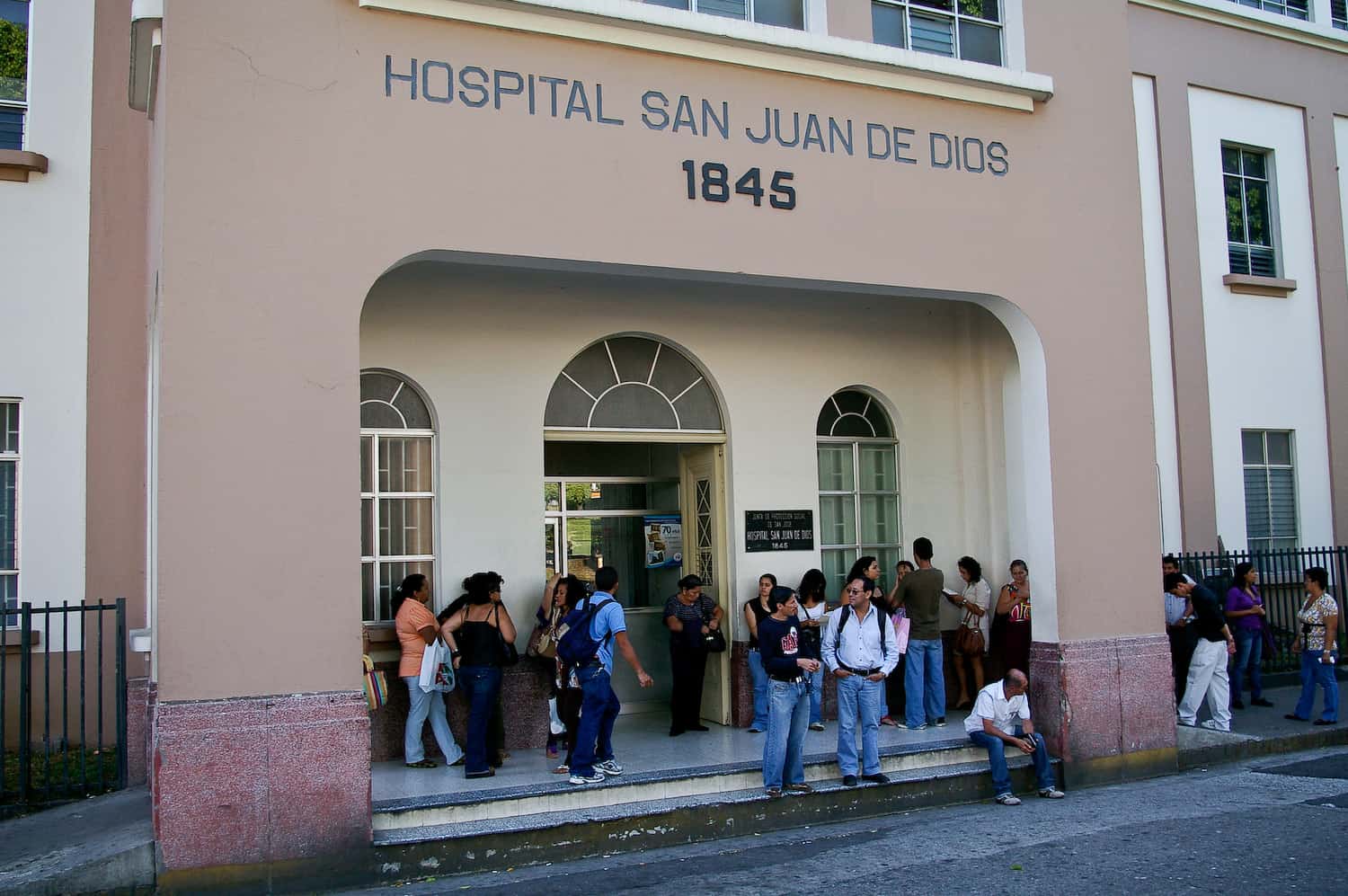Just over 378,000 foreign residents live in Costa Rica. Of those, 185,778 are employed, and 180,436 have health care coverage with the state-run Social Security System, or Caja, according to the “Third Report on Migration and Human Development,” released Wednesday.
Officials from the Public Security Ministry and the Immigration Administration presented the report, which is based on National Statistics and Census Institute data.
The document compiled information on migrant populations in the country in 2013, including variables such as countries of origin, access to public utilities, employment activities and use of public health services, among others.
According to the report, foreign residents in the country represent 7.95 percent of the 4.7 million people currently living in Costa Rica. Most – 74.6 percent – are Nicaraguan citizens, followed by 7 percent from other Central America countries, 4.3 percent from Colombia and 4.1 percent from the United States.
Expats covered by Caja health insurance, however, make up 11.4 percent of the total number of people registered with the agency, and visits to public hospitals last year accounted for 6 percent of the total 10 million visits attended by Caja physicians in 2013, the report stated.
Of that number, 4.97 percent (501,496) visits were by Nicaraguan patients, while citizens of Colombia (18,675), El Salvador (14,028) and Panama (11,968) accounted for less than 1 percent each of visits to Caja hospitals.
Immigration Director Freddy Montero said the report would allow government agencies to outline immigration policies based on reliable and scientifically collected data.
Abelardo Morales, one of the study’s researchers, noted a change in migrant population numbers after passage of a new Immigration Law in 2010, “which is promoting an integrated perspective of the migrant population and their rights here.”
The Labor Ministry has launched a campaign in local media to encourage people to denounce labor violations committed against foreign workers, particularly those who work in unskilled jobs. According to the ministry, 23 percent of foreign workers are emloyed in domestic work, and most are Nicaraguans with an irregular migration status.
However, Morales noted that an important number of foreign workers are not registered with any government agency and therefore do not appear in official records.
The report also lists barriers to improving employment conditions here, including a lack of documents to legalize immigration status, difficulties accrediting academic degrees, lack of education when compared to the country’s average, lack of information on labor laws, poor knowlegde of current labor market demands and fears generated by irregular immigration status.
During an event held at the Radisson Hotel in San José, government officials called for recognition of the role migrant workers play in Costa Rica’s economy, and they sought to discredit common rumors that immigrants abuse the public health care system.
“The entering into force of the new Immigration Law created a new regulatory system that has allowed us to convert the reality of immigration from something that has been detrimental to the public health care budget to something that is a good source of income for social programs,” Public Security Minister Mario Zamora said.
The new system requires affiliation in the Caja as a main procedure for a foreign person to become a legal resident in Costa Rica, “and that has helped us establish the Immigration Social Fund, currently valued at $10 million, which provides financial aid to all public services accessed by immigrants in areas such as education, health, security and others,” Zamora added.







